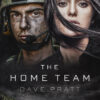Hi! I’m Kathy Ide. In addition to being a published author, I’m a full-time professional freelance editor. For CAN, I’m blogging about “PUGS”–Punctuation, Usage, Grammar, and Spelling…tips for writers based on the most common mistakes I see in the manuscripts I edit. Each blog post will have one tip for each of the four categories, as well as a reason it’s important for authors to “polish their PUGS.” (For more PUGS tips, check out my website, www.KathyIde.com, or get a copy of my book “Polishing the PUGS” (available through the website or at the conferences where I teach). If you’re interested in working with a freelance editor (or know someone who is), e-mail me at Kathy@KathyIde.com. Or go to www.ChristianEditor.com to get referrals to other established, professional editorial freelancers. If you’re a freelance editor yourself, or think you might be interested in that field, check out www.TheChristianPEN.com.
WHY POLISH YOUR PUGS?
PUGS errors can affect the sales of your book.
Readers who find a lot of mistakes in your book will not be as likely to recommend that book to their friends. And who knows? You may have a high school English teacher reading your book, and she just might recommend it to her students . . . unless there are a lot of PUGS errors in it.
PUNCTUATION TIP
Quotation Marks with Other Punctuation
1. Closing quotation marks always come after a comma or period.
ACFW held workshops on “Characterization,” “Point of View,” and “Floating Body Parts.”
2. Placement with question marks and exclamation points depends on whether the punctuation is part of the sentence as a whole or part of the quotation in particular. Examples:
Candy asked, “Do you know the way?”
How can we motivate teenagers who continually say, “I don’t care”?
Tiffany shouted, “Fire!”
I can’t believe he said, “Your story is boring”!
USAGE TIP
foreword/forward
foreword (noun) is a page or two of comments at the beginning of a book.
forward (adverb, adjective) means “in front,” “toward the front.”
forward (noun) is a player on a sports team who tries to score points in a game.
GRAMMAR TIP
couple vs. couple of
Use couple alone when used as a noun.
“Robert and Mary made a cute couple.”
When used as a modifier, you need the of.
It’s never “a couple tomatoes.” Always “a couple of tomatoes.”
SPELLING TIP
acknowledgment (not acknowledgement)


